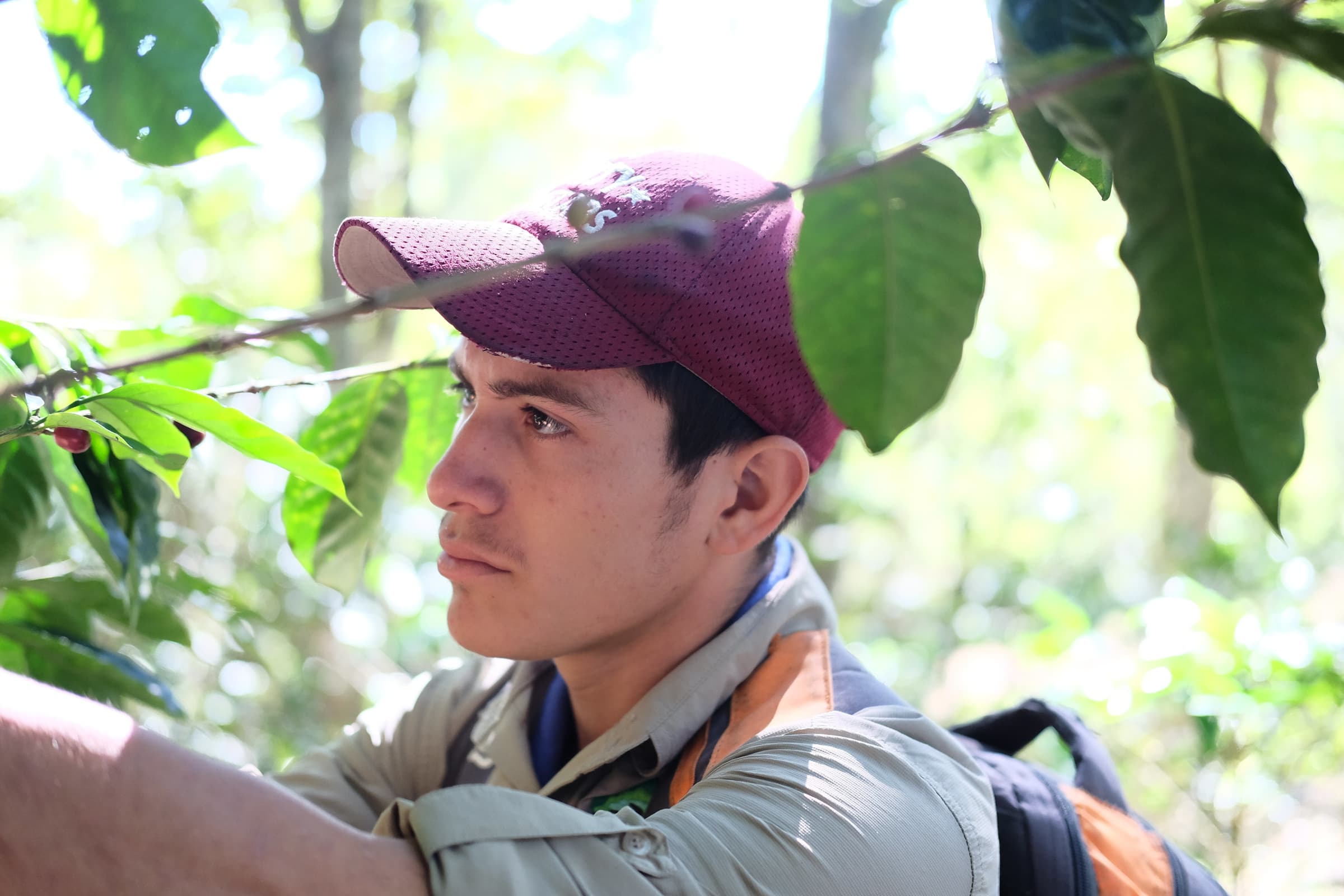Speeding up genetic progress
How molecular breeding approaches are bringing progress to farmers faster.

An agronomist takes vegetative growth measurements of plants in Nicaragua. Credit: Bram de Hoog
Molecular breeding is an approach that allows breeders to be more efficient and targeted in their work. Molecular breeding is different from genetic modification. It allows breeders to make predictions about the traits a plant will have based on DNA profiles. For example, a breeder can screen a young coffee plant in a nursery for molecular markers associated with a trait like fruit shape, rather than having to wait to see the trait itself—which may take years to show in a tree crop like coffee. This approach, called marker-assisted selection, can cut breeding time in half and substantially reduce the cost. This strategy is efficient when the desirable trait is governed by one or very few genes, such as dwarfism, pollen production, and some diseases.
For this approach to be used, researchers must first identify which genetic markers are associated with which desirable traits. In coffee, this work is just beginning. Our first goal is to identify relevant markers/genes. With our partners Nicafrance in Nicaragua and CIRAD in France, we are studying a population of trees to correlate variations in phenotype (observable traits, like plant height, yield, etc.) with the individual plants’ genotypes via DNA testing.
As key genetic marker targets are identified, World Coffee Research plans to use marker-assisted selection whenever it is relevant and efficient. As soon as the plants have leaves in the nursery, we will fingerprint them and see if favorable genes are present or not to dramatically reduce the time it takes to select plants for key traits and reduce the cost of creating new varieties.
Our progress so far:
- 384 coffee trees
- 6,015 phenotype data
- 42,400 leaf rust data
- 6,770 productivity and coffee processing data
- 3,886 bean analysis data
- 384 DNA samples
Up next:
Create an integrated database